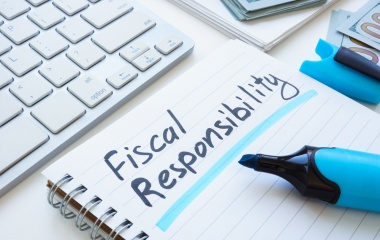
Included in the many tragedies of war are those in the economic sphere. While loss of money pales in comparison to loss of life, the economic hardships are nonetheless real and painful. Lost jobs, ruined businesses, broken contracts and an expected economic slowdown are sure to be some of the effects of the latest Middle East war. This unfortunately is not a new phenomenon; those lucky enough to survive the Holocaust were rendered by and large penniless. As the remaining survivors age, many face the frightening prospect of poverty. The indignity of many ageing Holocaust survivors forced to beg, with only limited success, for assets that were stolen from them just add insult to injury. Above and beyond our obligation to help all those in need, there is a special obligation to ensure that the survivors can live their remaining years in relative comfort.
The effects of poverty are much harsher to those who have been previously blessed with material success. It is this psychological need that is the basis of the law that in giving tzedakah one must restore the person to their previous lifestyle. With so many other pressing needs this law has perhaps been relegated to our theoretical cannon; yet the concept that lies behind it must always be kept in mind.
In recent years attempts have been made to try and recover property looted from the Jewish people during the Holocaust. While from a moral perspective all such items should surely be returned to their original owners or their heirs (or in the many cases where families were completely wiped out, to the Jewish community at large) it is far from clear that a legal obligation to do so exists.
While a thief must return a lost object – and Judaism has no concept of a statue of limitations – those who acquire stolen goods from the thief, whether innocently or not, are not necessarily so obligated. Interestingly the fate of the stolen object itself is determined by the mindset of the victim. Jewish law maintains that a change in ownership coupled with the victims’ despair of ever recovering a stolen object (yeush) can convey legal title to the purchaser. This is so regardless of whether or not the purchase knew, or should have known that the object was stolen. While it is strictly prohibited to transact with a thief or his property – being an enabler of sin is first and foremost a moral wrong which may at times have few legal ramifications. The difference between the good faith purchaser and the accomplice to the crime revolves around compensation to the victim. In the latter case the purchaser must fully compensate the original owner whereas the innocent purchaser faces no such financial penalty.
In such case where an owner does not despair of recovering a stolen item, upon discovery of such the owner may take possession even from an innocent buyer. Nonetheless to ensure that those who act in good faith suffer no monetary loss in their market dealings the original owner must pay the purchase price to the innocent third party and then attempt recovery from the thief. The bad faith purchaser would of course receive no compensation.
Unfortunately it is fair to say that Jews who had their property looted by the Nazis most likely despaired of any potential recovery; there was not such thing as justice for Jews in Europe of the 1940’s. Yet it is hard to imagine that many a purchaser of looted material were unaware of the nature of their purchasers. Jewish teachings demand that blissful naiveté give way to asking questions to ensure that our business dealings be conducted with the utmost integrity.
Comments rabbijay@torahinmotion.org
Rabbi Jay Kelman is a Founding Director of Torah in Motion, dedicated to exploring the intellectual
richness of Judaism and applying that wisdom to our everyday challenges. www.torahinmotion.org



